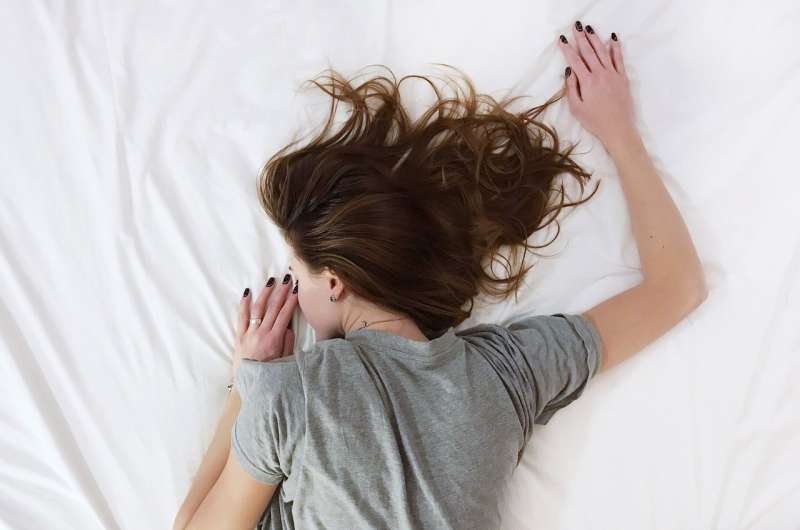Getting enough sleep may help skin wounds heal faster

Getting more sleep may help wound healing, and a nutrition supplement may also help, according to a new study. The paper, published ahead of print in the Journal of Applied Physiology, was chosen as an APSselect article for November.
Physical and emotional stress and poor nutrition have been found to weaken the immune system. Previous studies suggest that boosting nutrients such as vitamin C, omega-3 and other amino acids reduces inflammation and speeds post-surgical healing.
Researchers examined healing time (skin barrier restoration) and immune response in three groups of volunteers:
- One group slept two hours a night for three consecutive nights and consumed the recommended dietary allowance for dietary protein, along with a non-nutritive drink twice a day ("sleep-restricted placebo").
- A second group slept two hours a night for three consecutive nights and consumed a higher amount of protein along with a nutritional supplement beverage twice a day ("sleep-restricted nutrition").
- A control group slept normally for the three nights ("control").
The research team collected fluid from superficial wounds on the volunteers' arms. Each day the researchers measured the amount of immune markers present in the fluid and the wounds' skin-barrier restoration rate.
The wound fluid from the sleep-restricted nutrition group contained higher levels of pro-inflammatory cytokines—a substance that is released by immune cells—during wound recovery when compared to the other volunteers. This suggests that the nutritional drink may boost immune response at the wound site. Both sleep-restricted groups' healing time was delayed by almost a full day when compared to the control group. However, there were no differences in skin-barrier restoration between the two sleep-restricted groups. "The failure of the nutrition intervention to affect skin-barrier recovery was surprising, given the higher concentrations of pro-inflammatory cytokines at the wound sites during the initial phase of wound healing in participants who received the nutrition intervention relative to those who received the placebo," the research team wrote.
Although the results were not entirely as expected, the study may have practical implications in people—including military personnel and medical professionals— for whom inadequate sleep may be unavoidable. During times of sleep deprivation, maintaining a higher protein intake and consuming additional immune-enhancing vitamins and minerals may help boost the immune response. However, more research is needed, the researchers said.
The article, "Impact of sleep restriction on local immune response and skin barrier restoration with and without 'multi-nutrient' nutrition intervention," is published ahead of print in the Journal of Applied Physiology.
More information: Tracey J. Smith et al. Impact of sleep restriction on local immune response and skin barrier restoration with and without 'multi-nutrient' nutrition intervention, Journal of Applied Physiology (2017). DOI: 10.1152/japplphysiol.00547.2017


















